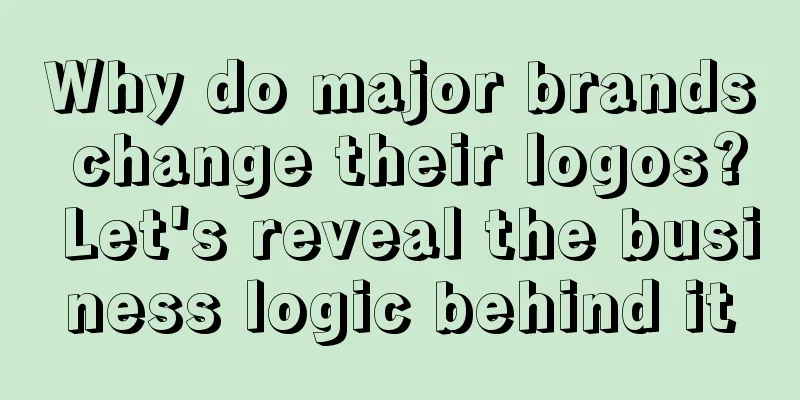2024, brand is the best growth tool

In the past ten years, I was almost a "preacher" of the brand, taking it as a belief that I kept in mind every day. Maybe someone will say that I talk about brands in order to do business and promote paid knowledge. However, do you know how inappropriate it is to only talk about brands in the past decade? When everyone is talking about traffic and growth. Obviously, even if you are doing business, branding is far less important than traffic, conversion, and private domain. In the second half of 2020, we met a client. After we finished the project, the other party was very grateful. The CEO called me for a long time. The gist of the call was this: Mr. Li, you need to do "operation", growth, and "hook" externally, three-stage rockets, five-stage funnels, etc. You can't always punch with hard bridges and hard horses. Don't be too real, you need to play with "traffic". After the call, I thought about it for a long time. To be honest, I was entangled. When it comes to traffic logic, the growth rate and expansion of scale can be seen with the naked eye. What I am entangled with is: what will the final battlefield look like? Not only in the knowledge and content industry, but also in consumption, technology and other aspects, I have a strong feeling that the growth before 2024 seems to be "all fake". Excited investors, enthusiastic entrepreneurs, channels and platforms full of guests. Record-breaking sales, huge orders, and a grand occasion like blooming flowers. I have a question: Are some products really sold? Or are they just sold to take advantage of the excitement? How many of these transactions can be sustained? How many are just for show? I have been thinking, observing, and practicing these questions for three years. At the beginning of 2024, I suddenly figured it out. Now, I will report to you the three points I have figured out. 1. Brand can be both a purpose and a toolEver since Levy and Trout had a great debate in the 1990s on "Which is the core, brand or marketing?", brand and marketing have actually become independent. Each does its own thing and follows its own path. No matter which path you take, as a company, the core mission is definitely growth. Not to mention the company, even life, the core value and meaning is growth. Okay, then make it long. Everyone has seen the long-term marketing methods in the past few years. All the eighteen martial arts of marketing can be said to be fully demonstrated, with obvious effects and prominent flaws. The effect is that sales can be obtained immediately, but the flaw is that sales can also be lost immediately. The reason is the utilitarian and mechanical nature of marketing. Marketing, marketing, marketing, in the end it's all for nothing. Who are the ones who are really happy in the past few years? Those who are engaged in channels, platforms, traffic, and services. It is enough to show that marketing is a business model, not a corporate purpose. Children who have been trafficked should not be excited with the traffickers. It is very unwise for those who are truly engaged in business and industry to follow suit and invest money. Why do we have to follow and invest? Two reasons:
Sadly, even this road will be unavailable after 2024. Why? Because this road has become so complicated that even a fool would find the problem. Invest 20 cents, get 10 cents back, and lose 10 customers. Turn around and ask for money from the investor dad, the investor dad said, I have no money either, I still need to make money by doing self-media. So, what should we do in 2024? The best answer: Forget about others and return to yourself. The answers are all in the enterprise. Come back and make a new decision: Do you want to be marketing-centric or brand-centric? I know that in the past you were reluctant to be brand-centric because you felt that it was not stimulating, did not make money, and did not generate growth. wrong. This is a point that brand guru Levy seems to have not figured out: Brand is not just a purpose. Brand can also be a means and a tool. Brand as a purpose is the CEO’s first mission and priority; brand as a tool is the first sharp weapon to drive growth. How does it grow then? 2. Keep only the most accurate "sparks"Please note that this sentence is not talking about positioning, market segmentation, and vertical populations. This sentence is about a strategy used by brands during economic downturns. I call it the Fire Offensive. No matter how difficult the business is, don’t put out the fire. (The absurdity of the past few years is that some seemingly large companies have not yet found their own fire.) As long as you have your own spark, you can really achieve cost reduction and efficiency improvement. Otherwise, you will mistakenly think that laying off employees and making budgets are cost reduction and efficiency improvement (that is lazy politics). There are two questions coming: Have you ever thought about who is the "spark" of your business? The kind of spark that can "start a prairie fire" with a fulcrum in the future? What plans and efforts have you made to preserve your fire? What results and gains have you achieved? I have seen many companies that have no idea who is the "fire" of their own brand. They are busy chopping wood and grabbing resources and traffic every day. Even if they bring the firewood home, they can't light it at all. They spend a lot of money on firewood, but what they lack most at home is actually a lighter. Sadly, firewood is expensive, but it looks rich just sitting there. Lighters are cheap (some require drilling wood to make fire), but no one wants them. To find the "spark", it doesn't matter how much there is, what matters is whether it exists, whether it is right or not, and whether it is accurate or not. 3. Every point in the business is closely related to growthWhich department is responsible for growth? Some companies take it for granted that it is the responsibility of the sales and marketing departments. This is another flaw of the marketing-centric approach. When growth becomes the responsibility of the growth department, the work of other departments becomes unrelated to growth. So, which department dares to say that it has nothing to do with the company's "brand"? Brand, as the main axis of business management, is the best solution for high-growth in an era of low-growth. How can a brand be the main axis of business operations? What are the advantages of it being the general commander? 1. Help CEOs wake up and get out of troubleToday's CEOs are in a state of confusion. They take all kinds of management courses and MBA classes. They learn finance this year and innovation tomorrow. The more they learn, the more confused they become. There is no connection between all the learning contents. They seem to be "fighting" with each other. CEOs are frustrated. In daily management, it is inevitable that the various departments of the company will hinder each other. Each department has its own reasons. They are all business departments, and it is difficult to easily deny any of them. CEOs are very confused about what criteria they should use to judge cases and what basis they should use to set goals. 2. Sales as the main axis has side effectsIf the main axis of operation is "financial data" or "sales data", it will cause a huge operational sequelae: "Sales only see orders but not people", "Managers only see numbers but not pursuits". This sequelae is particularly harmful. In the past, when the market was not saturated, it was okay to play this way, at least you could get some numerical growth. In the future, when the market is saturated, companies that play this way will encounter huge setbacks in management, culture, and performance. In fact, the same is true for people. A person who works hard to make money is considered "progressive" in the evaluation system of Chinese society. However, people who make money their only goal will only be considered "pitiable" in the future evaluation system. 3. Chinese companies and Chinese society use Chinese ideas to solve problemsWhen Chinese companies open companies in China, they cannot be completely "fake" like foreign companies, nor can they really "conquer cities and plunder territories". Our management is not only based on systems, but also on human relationships. Our performance is not only based on value, but also on trust. Our organization is not only based on employees, but also on friends. Our assessment is not only based on numbers, but also on feelings. Therefore, blindly copying foreign experience and imitating the management methods of various large enterprises is like trying to find a sword by cutting the boat. What is the idea of Chinese people to start their own companies? It is "brand", because brand is essentially the gain brought by all aspects of relationships. The premise of the relationship is to be clear: who am I, what do I do, who are you, and what can you do for me. When we were very young, eating watermelons and watching Journey to the West every summer vacation, Tang Seng had already explained the true meaning of brand. "I came from the Tang Dynasty in the East (mission), and went to the West to worship Buddha and seek scriptures (vision). I passed by your precious place (model), and I specially asked for a bowl of vegetarian food (transaction)." Author: Li Qian; WeChat public account: Li Qian talks about brands |
Recommend
Is it reliable to open a cross-border e-commerce store on Amazon? How to open a good store?
Amazon's cross-border e-commerce platform has ...
AI Taobao store, after 2 months of operation
Lumi Micro Store was founded in April 2022, and ha...
How often does Shopee's funding cycle occur? What should I pay attention to?
For merchants who have just settled in the Shopee ...
1688 joins Taobao and Taobao Specials migrates. Is Alibaba’s main low-price battlefield shrinking back to Taobao?
Recently, Taobao, Taobao Special, and 1688 have un...
When a brand crisis encounters public opinion trial
In recent years, too many brands, anchors, and KOL...
The "Little Princess of Anfu Road" who owns ten apartments in Shanghai has become an Internet celebrity...
Is the internet celebrity "Anfu Road Little P...
How to upload Amazon FBA European VAT? How to register European VAT?
Amazon FBA sellers provide storage, packaging and ...
With over 36 million members and an IPO on the horizon, how does Gu Ming, a brand with tens of thousands of stores, operate its private domain?
The continued growth of Gu Ming's performance ...
Live broadcast rooms are frequently cracked down on, and anchors have difficulty finding a balance between product selection and making money
Double 12 has just passed, and there are also news...
Everything is unified, Xiaohongshu officially announced the only legal way to attract traffic
As Xiaohongshu platform continues to optimize its ...
Top internet celebrity "Wang Ma" with millions of fans fell from grace. Was her success and failure due to being a worker?
In recent days, the top internet celebrity "W...
What is the difference between Amazon's Flash Sales and Seven Days of Sales? What are they?
Opening a store on the Amazon platform requires go...
Xiaohongshu search traffic is going crazy, 70% of the blue ocean entrance is here
Where will new business growth be found in 2024? B...
The number of followers increased by 4 million in 7 days. Who created “Wa Ya Wa”?
"Dig and dig in the little garden, plant litt...
Can Amazon individual sellers send FBA products? What should I pay attention to?
There are many people doing cross-border e-commerc...









